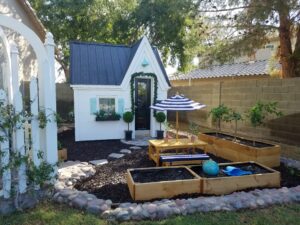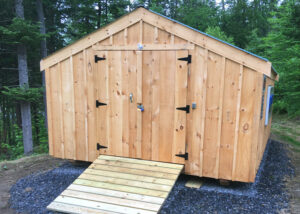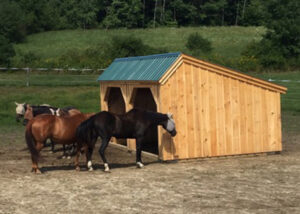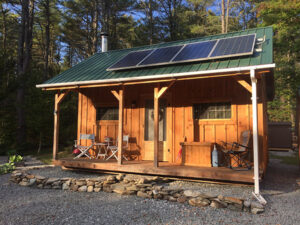Reflections (and some advice) on living in a yurt for five New England winters By Sarah Antel
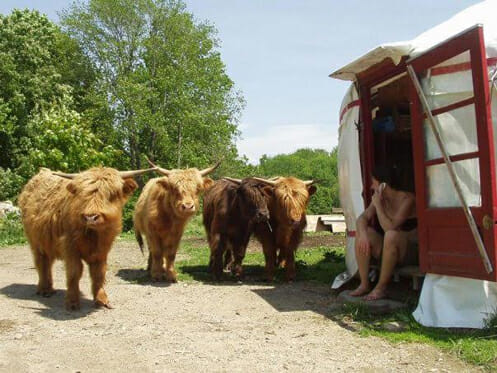
Somewhere in New England is a farm where my idealism was born and buried. I know, you’re thinking you’re going to live in a yurt because you want affordable shelter and a more permanent space is out of your budget. I know you, or at least your way of thinking because once upon a time I considered myself an idealist; I thought the same way. I wanted to be a farmer, to live lightly on the land, raise my own food, indoor plumbing was not necessary, nor was running water. For five years I showered at friends’ houses, used an outhouse, raised animals for food, had a large garden, heated water on the stove to wash dishes and eggs with, and plowed the road out with a tractor in the winter. I dealt with rodents invading my shelter and bed, I dealt with the shoddy construction of a yurt as I watched the roof blow off in a sleet storm thus exposing all of my life to the weather, I dealt with cold feet all winter because heat rises and quickly escapes through a piece of vinyl. Insulation does nothing in a yurt, snow and hay around the bottom will not help much. The six inches down by the floor will always be cold in the winter. Living in a yurt does bring you back to the basics, to your roots. You understand that you are a creature formed from nature as you hear the creek raging after a downpour and all of the night sounds through your yurt walls. You can hear the mink terrorizing your chicken house, you can hear the cows jumping the fence at 2 am, you can hear the rain pounding the roof, making you deaf. Some people may view these as positive aspects. I had enough of them after five years.
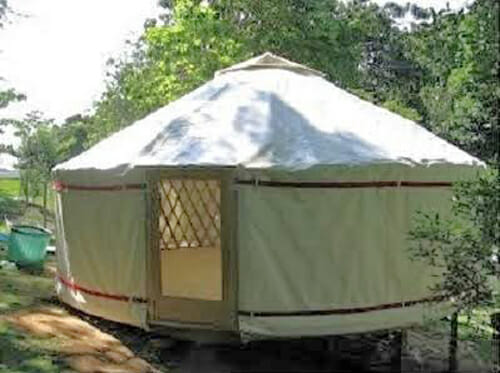
The young idealists of today may view me as a cynic or tell me I have gone soft. I think those labels are inaccurate. I see myself as a realist, with my opinions and decisions solidly based in experience-hard, real, experience. I’m sure there were pretty days when I enjoyed the yurt, but I think they numbered much fewer than the trying times. The yurt was unbearably hot in the summer, uncomfortably cold in the winter, there was no privacy from humans, wildlife, rodents, or insects. As a result of my experiences of using a yurt for my shelter, I changed my views on how I want to be protected from the elements. I prefer to have warm and dry shelter when nature calls or I am ill. I learned that I prefer shelter that is stoutly built, shelter that can stand up to the weather, shelter that can protect me and those I care about. I like taking a hot shower, I enjoy having a kitchen to cook in for my family. These are some of the luxuries that make my shelter a home. It was not easy to make a yurt a home, not when I felt like I was spending a large amount of energy trying to fend off nature from ripping my shelter to shreds. Shelter is one of the basic needs for survival. A home is when that shelter is loved because it provides the sense of safety I believe that is also necessary for survival.
Reflections (and some advice) on living in a yurt for five New England winters By Sarah Antel


